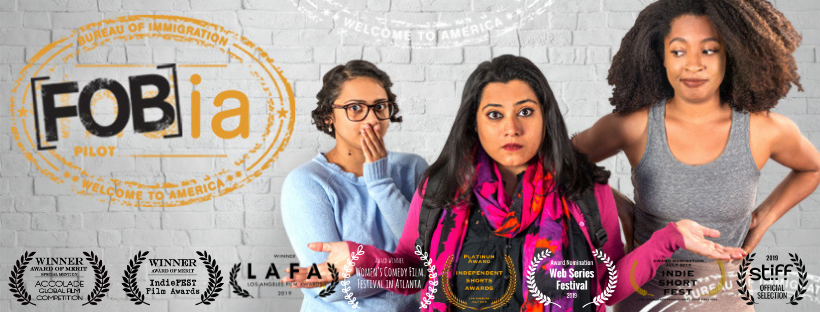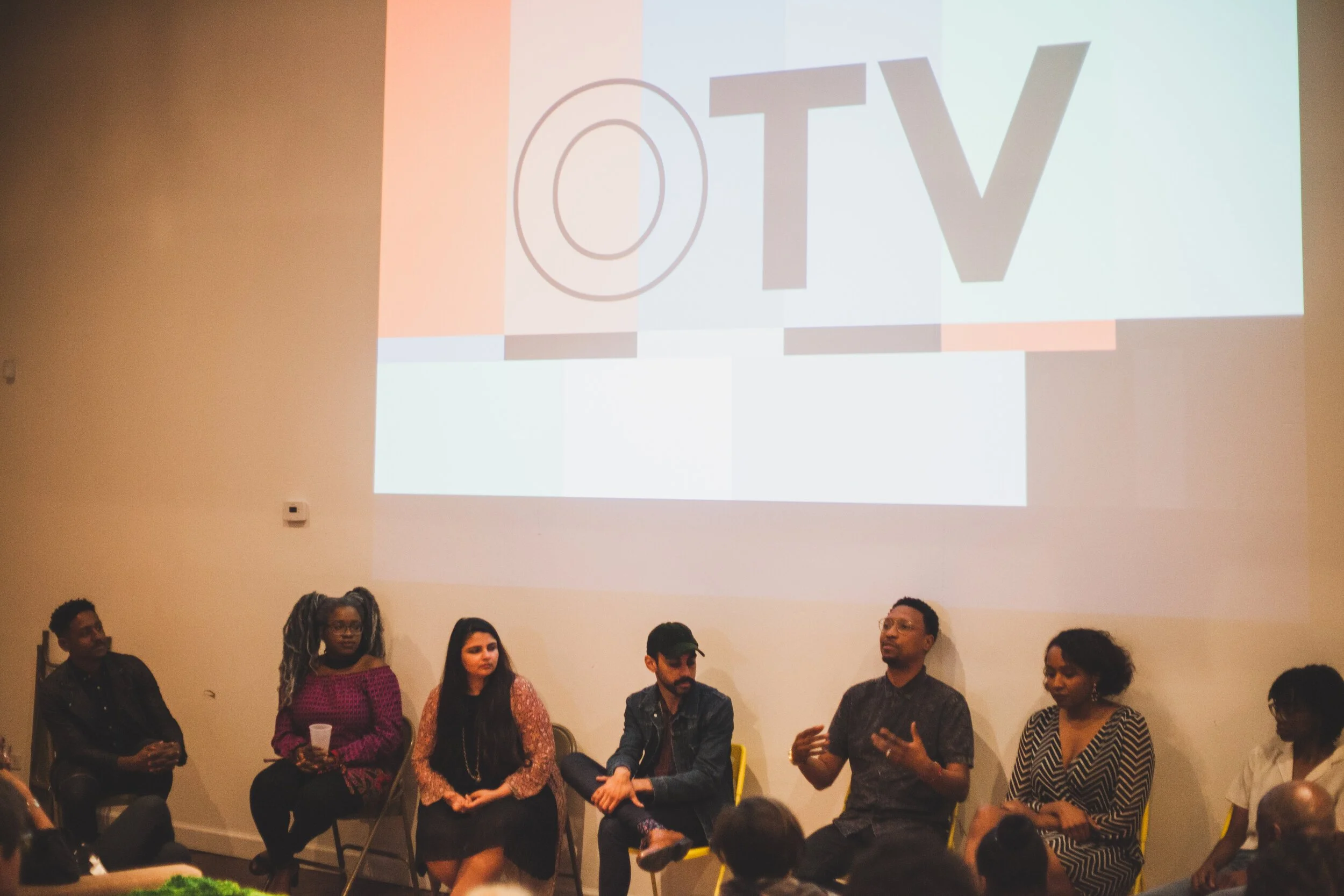
inside OTV | 2019
BY AYMAR JEAN CHRISTIAN
AUGUST 4, 2020
OTV continues to grow! 2019 saw the first year OTV received funding from outside foundations, allowing us to expand our team and the programs we offer.
FUNDING & SUSTAINABILITY
The first four years of OTV were mostly funded by Northwestern University through research allotments I raised being recruited and retained. Running through project from my own research funds allowed me the freedom to experiment with new models for developing television that center multiply oppressed artists and communities.
But I will be honest: it was never enough money for OTV to reach its full potential. Every year I grew skeptical that we could secure outside funding for the project. Most non-profit funders only support feature film production, documentary or journalism in their media portfolios. Grantmaking to media projects is small compared to almost every other field. Distribution, narrative, short-form and television are not common in foundation portfolios.
Still: 2019 brought a radical shift: we now have outside funding! In just three years time, which is fast in the non-profit world, foundations saw our innovative work and stepped in to provide us with seed funding so we could see what OTV looks like as an independent organization. Here’s what we’ve done with that support:
Field Foundation: Thanks to the Field Foundation we were able to hire Jenna Anast to be our first Head of Community & Exhibition, producing screenings and working with our community to make space for connection and restorative justice. In their role as Head of Exhibition, Jenna produced all of OTV’s screenings and events in 2019. In their role as Head of Community, Jenna started the work of advancing equity and healing in our community, starting the process of slowly repairing the toxicity rampant in film/TV production and exhibition. Through a series of workshops at Reunion with our artists and community members, Jenna developed our first Brave Space Agreements, which we use in workshops and collaborative settings to ensure our values of mutual respect, understanding and equity are agreed upon by all who show up to our spaces. We have even been able to promote the agreements online and outside of Chicago. In addition, Jenna performed two conflict mediations as Head of Community, starting the process of healing wounds that took root in two of our productions.
Pop Culture Collaborative – Thanks to Pop Culture Collaborative we started a new program: OTV Fellows. Last year, four fellows, Reshmi Hazra Rustebakke (dir. Brujos, FOBia), Karan Sunil (Code-Switched), Deja Harrell (Seeds), and Vincent Martell (Damaged Goods), were selected to develop long-form projects with Stephanie Jeter, former Head of Production and current head of the new OTV Studio (see below). The Fellows participated in retreats hosted by Pop Culture Collaborative and our first OTV x Sundance Mentorship Intensive. PCC renewed the grant for this year and we focused on artists without much produced work and funded a series of online courses to help them develop, OTV Study Hall.
Starting in 2020, both the MacArthur Foundation and Surdna Foundation provided generating operating support and some support for new programs (see below). This has allowed us to give our team their first raises in years and generally provided us more capacity to continue to grow the organization!
Most importantly, this funding has allowed us to hire our first Executive Director in Elijah McKinnon, formerly our Head of Marketing and Design! Elijah brings to the role a wealth of experience: running a community-based venue in Reunion; a private marketing consultancy; and directing & producing experience in narrative web series, music video, public service announcements, and live-streamed events.
NEW PROGRAMS
Better funding has allowed us to start new programs to better serve artists in Chicago and increasingly around the world.
Head of Community Jenna Anast with The Right Swipe creator Kyra Jones at the Wachowski’s studio
OTV x Sundance Mentorship Intensive – Thanks to sponsorship support from the Surdna Foundation and, primarily, Hannibal Buress, we produced a 2-day intensive hosted by Kinowerks (the studio owned by the Wachowskis) and Stage18 at Cinespace Studios, featuring one-on-one mentorship and meetings with a dozen select OTV artists, including the four OTV Fellows, and mixers and panels for 30 artists who had been in development with OTV. Our mentors were two seasoned filmmakers, Eva Vives and Andrew Ahn, as well as executives from MACRO, WarnerMedia’s Stage13, and Issa Rae’s Color Creative. We’re incredibly grateful to the Sundance Institute’s Director of Inclusion Karim Ahmad for helping us produce this event and continuing mentorship of many of our artists.
Brave Futures Film Race – Developed by Elijah and funded by the MacArthur Foundation, Brave Futures Film Race took OTV to Johannesburg, South Africa to coincide with AfroPunk, and Berlin, Germany to coincide with the Berlinale, incentivizing local filmmakers to produce a short film in two days. Entrants to both competition won a distribution deal with OTV and some won cash prizes!
ARTISTIC DEVELOPMENT
2019 was the biggest cycle in our history, where we released 9 pilots/video art works under OTV Presents, 10 series under OTV Originals, and 4 live-streamed programs.
OTV Presents
Holding down our Presents vertical for pilots, short films and video art were strong comedy pilots exploring dating, kinship and belonging by and about Black and brown women: Priya Mohanty’s FOBia, a pitch-perfect rom-com about a business school student and Indian immigrant; Kyra Jones and Juli del Prete’s The Right Swipe, where two women take it on themselves to reform men on dating apps; the second season pilot for Karla Huffman’s Yogma, loosely based on real-life experiences of Black female yoga instructors in Chicago; Kings and Queens, starring Bambi Banks-Couleé, brings us into the world of Chicago’s drag queens; and Aalisha Sheth and Nikkita Duke’s United States of Aliens found humor in an Indian and Nigerian immigrant’s struggle to understand America.
In drama, we released the pilot of Lauryn Lugo, Andrew & Adrian Nuño’s Border’d, about three Latinx siblings trying to balance the U.S. and their immigrant parents, in addition to two short films: Stephanie Jeter’s Searching For Isabelle, a supernatural perspective on the real problem of Black girls going missing, and Atra Asdou’s Renee, about a young women who has lost herself in caring for her parents.
Finally, we released a few experiment projects, as well, including our second project from Alexa Grae, i - LOVE//ME, an abstract expressionist meditation on love, and Coquie Hughes’ Granny Ballers Pilot Concept, a proposal for a film about Black grandmothers who do crimes to help their communities (and maybe themselves too).
OTV Originals
We continue to release some of the strongest series on the internet! In drama, we released the second season of Zak Payne’s beautiful Kissing Walls, chronicling two gay Black boys messily looking for love; Vincent Martell’s Damaged Goods broke the rules of respectability politics with style; Mia McCullough’s The Haven followed the struggle of a woman driven to a women’s shelter full of complex characters after her abusive husband struggling with PTSD; and Nine Blackmon’s Night Night spins a dark, twisty tale a addiction recovery.
In comedy, Jake Noll’s Just Call Me Ripley is a tender romantic comedy about a person coming to terms with their sexuality; Shervin Bain and Victoria Lee’s Low Strung hilariously shows two young Black people struggling to give a fuck; Marrissa Coccaro’s Fck Stan is a rollicking feminist revenge fantasy; Tracie Roberson’s Uneverything riotously funny satire of a young-looking Black woman in her late 30s whose life is uninspiring; Arnetta Randall (Hook-Ups) is back with Freaky Phyllis, the tale of a horny, recently widowed grandma; Ashley Lackinger’s For Better, brings much-needed diversity to the anthology romantic comedy.
OTV Live
Thanks in large part to Elijah, OTV broadcasted four live-stream events in 2019, including Lucy Stoole’s Black Gay Game Show and The Pleasure Principle, both sponsored by the AIDS Foundation of Chicago; Ricardo Gamboa’s The Hoodoisie, an intersectional talk show focused on Chicago and national politics; and of course OTV Tonight, our premiere event at MCA Chicago.
RECOGNITION
Priya Mohanty’s FOBia.
We continue to receive external recognition of the work of our team and artists!
Our co-founder and Head of Research & Development received a Leaders for a New Chicago Award from the Field & MacArthur Foundations! Half of the award went to OTV as an organization to support general operating. For the award Chicago Ideas Week went behind the scenes of Lucy Stoole’s Black Gay Game Show and profiled OTV:
OTV continued our 3-year streak of Streamys nominations, this year with Damaged Goods nominated for Best Indie Series.
The Queerties finally recognized that the best indie queer TV is on OTV with nominations for the T, Brown Girls, Kissing Walls and Damaged Goods.
Our shows cleaned up at Indie Short Fest by the LA Film Festival with wins for Just Call Me Ripley and For Better, and a nomination for FOBia. FOBia also received wins at the Los Angeles Film Awards, Accolade Global Film Competition, Women in Comedy Film Festival, Imagine This Women’s International Film Festival, among others.
As always, OTV is in development, and we will always have areas for improvement.
EXHIBITION
Screening for U.S. Aliens, Kissing Walls, Conspiracy Theorist in 2019 at Reunion
Festivals continue to recognize our series with Just Call Me Ripley winning best web series at Festigious and the T at Vancouver Queer Film Festival. Both Just Call Me Ripley and The Haven featured at the new rebranded Catalyst Fest. Frameline screened Kissing Walls and the T, Reeling Film Festival screened Kings and Queens; Stareable Fest screened Border’d and The Right Swipe, Black Harvest Film Festival funded and exhibited Sex Is A God Thing and Outfest showcased Femme Queen Chronicles.
OTV continued to partner with Chicago-based museums and galleries to exhibit our work, including our big premiere event at the Museum of Contemporary Art Chicago series premieres at the Chicago Cultural Center, and a special Pride screening at the Stony Island Arts Bank.
Online, our viewership stands at 1.2 million views and 4 million impressions in total. Attendance at official OTV screenings averaged around 75 as we focused on hosting fewer large screenings at the Chicago Cultural Center and more intimate screenings at Reunion.
AREAS FOR IMPROVEMENT
Artist Support
OTV artists create fabulous projects often with very small budgets, which over the years has led to burn out. As we know from artist interviews (document in our annual reports) raising money for and producing narrative on micro-budgets is incredibly taxing.
As conversations about equity and justice escalate in 2020, OTV is committed to raising a production fund, much like the one that Voqal Fund gives to Chicago Filmmakers, in which OTV artists have produced the most standout programming despite receiving only 20% of the funds. We believe that providing artists with a meaningful production budget is the first step to correcting decades of exclusion of Black, Brown, indigenous and other communities from media.
In the meantime we are devising ways to help artists support each other. First, we started our OTV Community Facebook group so artists can connect with each other. We are also brainstorming ways to coordinate writers groups and connect people to crew without needing our assistance.
Community Accountability
With the hiring of Jenna, we started to make steps toward defining how OTV can support accountability within the community and of the organizations.
Jenna has developed an engagement strategy, complete with community standards, brave space agreements, digital engagement standards, and partnership engagement standards. Having these standards has already led to change at some of the institutions we partner with.
Still, film/TV production is replete with harm, even at the low-budget level where scarce resources can stoke conflict and new filmmakers can clash with crews that are more experienced. We are continuing to develop our accountability standards and working to implement clear procedures and consequences for individuals who perpetuate harm. Our community standards lay a foundation for our core values, and we are working to provide follow-up steps for people who are in violation.
Accessibility
We continue to make strides in accessibility even as we still have improvements to make. Last year, we were able to provide subtitles to nearly all of our programs and we provided ASL at nearly every screening. We were not always able to get captions made before in-person screenings, and so had to pay our ASL interpreter to sign during screenings, which was not ideal.
This year, we have a budget for captions and every OTV project has captions, including during live screenings, which due to COVID have occurred online.
We currently only have one project with audio descriptions but will be devising partnerships with universities to describe more of our shows.
Marketing
Marketing continues to be a challenge for OTV artists, as we have consistently found in exit interviews (reports are on our Research page). It is also a challenge for OTV as social media platforms like Facebook have moved into the video business, they have discriminated against our projects, which are on Vimeo.
In 2020 we will be upgrading our website and launching a suite of mobile/TV apps in order to have more control over our audience and generate revenue from community/artist memberships. We also have a course on marketing as part of OTV Study Hall we can send to artists to help them with their own marketing efforts. We are continuing to work on ways to allow staff to support artists in their marketing.




